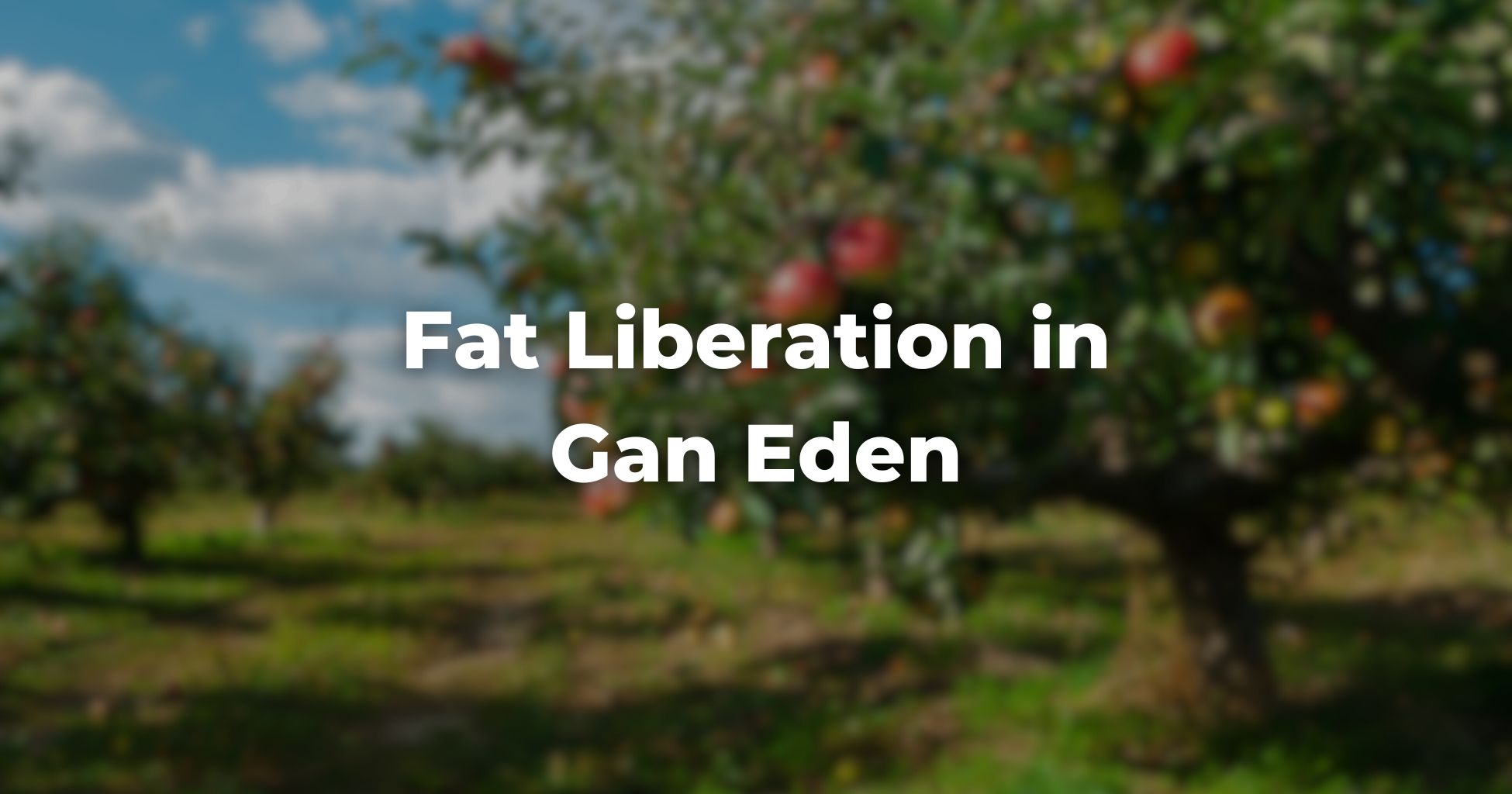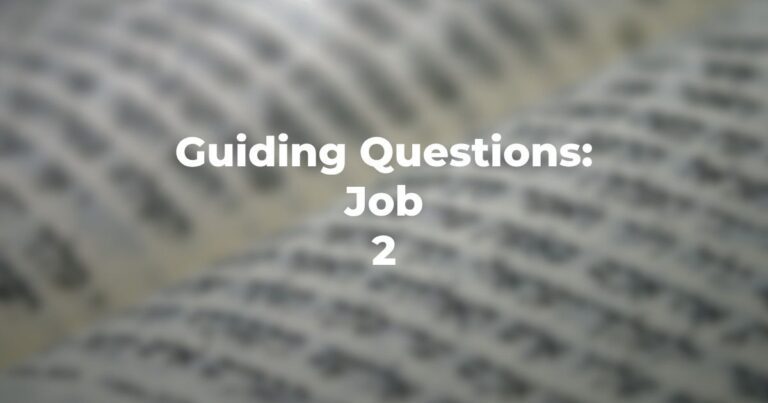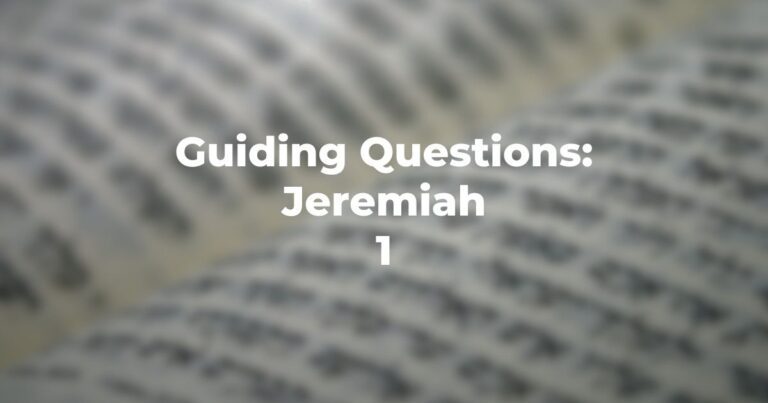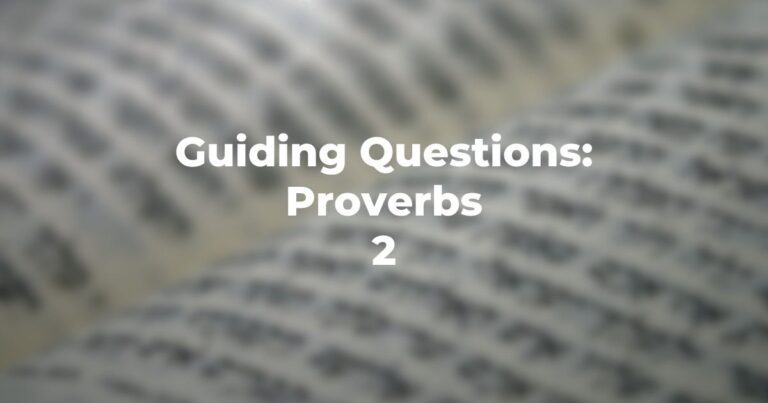Originally given as a senior sermon at JTS.
Rabbi Yochanan was a really attractive guy.
Rabbi Yochanan was so beautiful that the GemaraThe discussion portions of the Talmud based on the quoted Mishnah. Read more compared him to a silver goblet, trimmed with a crown of red roses, filled to the brim with pomegranate seeds.
Rabbi Yochanan was so beautiful that he would sit outside of the mikveh so that women would see him before they saw their husbands and create more beautiful children.
Rabbi Yochanan was so beautiful that his belly was only a little bit smaller than Rabbi Yishmael’s.
And when Rabbi Yishmael would stand belly to belly with Rabbi Elazar, they could fit a pair of oxen beneath their stomachs! In other words, Rabbi Yochanan was really beautiful and really fat.That last sentence, the description of Rabbi Yochanan as fat and beautiful, might have made some of us here today uncomfortable. In our culture, fat is a taboo word. The TalmudReferring to one of two collections, the Jerusalem and Babylonian Talmuds, edited in the 6th century, that contains hundreds of years of commentary, discussion, and exploration of the ideas in the Mishnah. One could describe it as Mishnah + Gemara = Talmud Read more uses the word in a positive way. But we were taught that the word fat is an insult, not an adjective.
If you have negative associations with the word fat, I’d like you to set them aside for a few minutes as we explore the idea of body shame in the TorahRefers to the first five books of the Hebrew Bible, the Tanakh, also called the Five Books of Moses, Pentateuch or the Hebrew equivalent, Humash. This is also called the Written Torah. The term may also refer to teachings that expound on Jewish tradition. Read more reading for this week, Bereshit.
Unlike the evocative descriptions of Rabbi Yohanan, the Torah doesn’t detail the beauty of the first humans. We do know two things. One: we know they were made in God’s image, B’tzelem Elokim, and two: we know that they did not experience shame about their naked bodies.
וַיִּהְיוּ שְׁנֵיהֶם עֲרוּמִּים הָאָדָם וְאִשְׁתּוֹ וְלֹא יִתְבֹּשָׁשׁוּ׃
The two of them were naked, the Human and his wife, yet they felt no shame. (Genesis 2:25)
Rabbi Adin Steinsaltz, writes,
“Like the other living creatures, the man and his wife did not need clothing in the Garden of Eden. As part of the natural world, humanity was originally bare and exposed.”
In other words, God creates us with naked bodies just like all of the other creatures. Only by eating the fruit from the tree of the knowledge of good and evil do we learn body shame. This is one of the evils we learn from the tree.
What was life like in Eden without body shame? Adam and Eve had body neutrality. Adam didn’t hold a pillow in front of his belly on the couch. Eve didn’t wear a cardigan on a hot day to hide her jiggly arm fat. Adam didn’t cover his bald spot with an extra large kippah. Eve didn’t straighten her hair. They didn’t take selfies from a flattering angle. They didn’t wear Spanx. They didn’t use creams to smooth their wrinkles or their stretch marks.
The two of them were naked, yet they felt no shame.
Despite my parents’ best efforts, I did not grow up in a body-neutral world. The first time I remember praying to God I was four years old. I asked God to make my thighs as skinny as the new girls in dance class. I don’t think I was old enough to know the word thigh, but I was old enough to start feeling shame about my body.
Four-year-old Rebecca with the healthy baby belly of a toddler, a red string tied on my right ballet slipper so that I knew which toe to point, standing in a room of other toddlers in pink leotards and tights, feeling shame and jealousy because the new girl in class was skinnier than me. I knew that skinnier was better. My first prayer was about making my body smaller. Why do so many of us pray to God to make our bodies smaller?
The body shame I experienced then was from wanting to conform to our culture’s thin ideal. Outside of Eden, we live in a fatphobic society. People of all sizes may experience internalized fatphobia from the cultural value of the thin ideal, leading to body image issues and a fear of becoming fat. Just like with other forms of bigotry, like homophobia and sexism, fatphobia impacts everyone but hits the most marginalized among us the hardest.
On top of experiencing body image issues, fat people can face unsolicited comments about their health from friends and strangers as well as workplace or medical discrimination. Fat liberation is an intersectional social justice movement. It aims to end fat discrimination alongside all other forms of bigotry.
Fat Torah is an outgrowth of the Fat liberation movement.
Dr. Rabbi Minna Bromberg, founder and president of the organization, fat torah, explains that
“Fat Torah is a Torah — a source of wisdom and spiritual sustenance — that is fat: rich and expansive, nourishing from itself and beyond itself, with room for all, teaching through its love of fatness a love of all other marginalized bodies — Black and brown and queer and trans and disabled and old and sick and neurodiverse.”
Other examples of fat celebratory Torah include the seven fat cows in Pharoah’s dream representing the years of plenty, compliments about bellies in Shir Hashirim, and Egypt as the narrow place contrasted with Israel as the land of milk and honey. Of course, the Torah contains some fatphobia too. For example, in Judges, the hero, Ehud, kills the villain, King Eglon, a fat man, by stabbing him and stowing the weapon in his belly.
JTS teaches us that one way to read a text with a liberatory lens, whether that be Queer, feminist, or in my case, fat, is to look at a verse in isolation and see a deep Torah truth in the p’shat of that one moment. Read the words and understand a possible simple meaning of just those words by themselves. They were naked, they felt no shame.
Rashi, Sforno, and Radak all interpret this verse, “The two of them were naked, the Human and his wife, yet they felt no shame” in the context of sexuality, which makes a lot of sense if you read it with the end of the story in mind. Adam and his wife didn’t know about the pleasures of their bodies and so they felt no shame. When they learned shame, they covered them with fig leaves. Perfectly logical with the narrative.
However, when I read this verse on its own, imagining that I don’t yet know where the story is going, I discover a nugget of Fat Torah. Adam and Eve were naked without shame. They could look at their bodies without judgment, without longing to be skinnier, or smaller in this way or that. There was no body shame in paradise. With this verse, we can imagine Gan Eden as a space of fat liberation, a place where no human feels embarrassed about her body.
How do we make our Jewish world more like Gan Eden?
When we teach fat liberatory Torah, we tell ourselves and our community that fatness is a normal part of Torah, it’s a part of Judaism, and it’s a part of being human. We do not all look the same and yet we are created in the image of God.
If that’s true, so too, our Jewish spaces can be fat liberatory spaces. Instead of discussions of cutting carbs all week to earn a slice of challah at kiddish, people could just enjoy the taste of the food, feel a connection to Jewish culture, and pass down a love of kibbeh or kugel from one generation to the next. Instead of bathrobes, mikvehs could carry bed sheets big enough to fit anyone who wanted to dunk. How many more voices could join the song circle if we had bigger, sturdier chairs? What Torah could our children teach us if they devoted no brain space to what their bodies looked like?
This year, as we begin the Torah anew, let’s make space for the rich Torah, the Fat Torah, the Torah of abundance that lives in that familiar place of hypervisible and overlooked. We live in a world that wants us to forget that every one of us was made in the image of God. In all of our size diversity. All people.
In the beginning, God created Adam and Eve with naked bodies and no shame about them.
I’ll bet God created you that way too.
Author
-
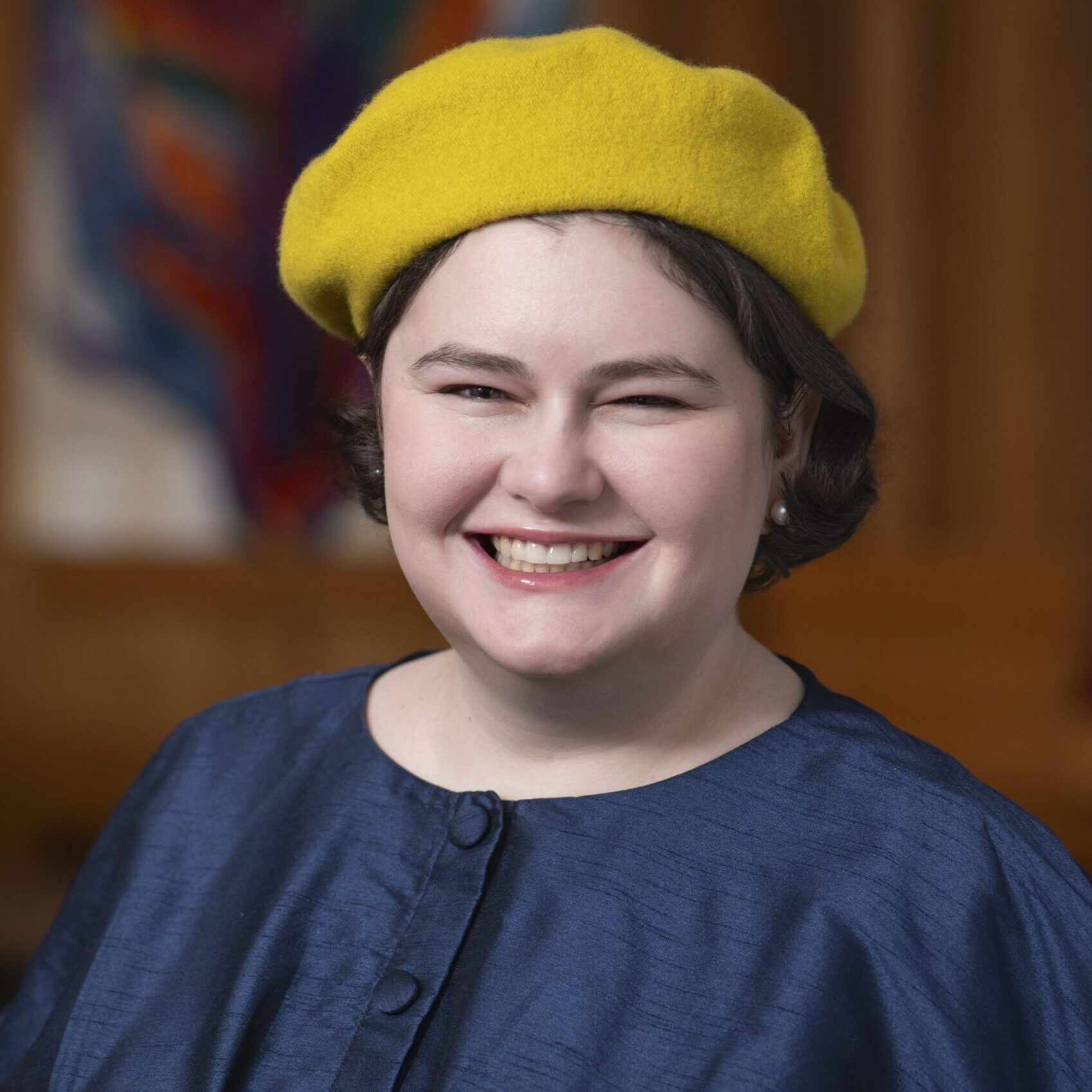
Rebecca Galin (she/her) is a fifth-year rabbinical student at the Jewish Theological Seminary. She serves as a rabbinic intern at Brandeis Hillel. Rebecca is working towards her MA in Spiritual Care & Counseling, for which she completed two units of Clinical Pastoral Education at New York Presbyterian and DOROT. Previously, Rebecca worked at Rutgers Hillel, University of Albany Hillel, and T’ruah. Rebecca graduated magna cum laude with a BA in Prayer Studies from JTS and cum laude with a BA in Film Studies from Barnard College. Rebecca is a vegetarian and enjoys baking and making jam. She is passionate about egalitarian Jewish learning and LGBTQ+ rights, and recently published “Arukh Lakol,” a queer-centered birkon. She resides in Washington Heights with her partner, Sam.
View all posts https://izzunbooks.com/products/arukh-lakol-birkon


